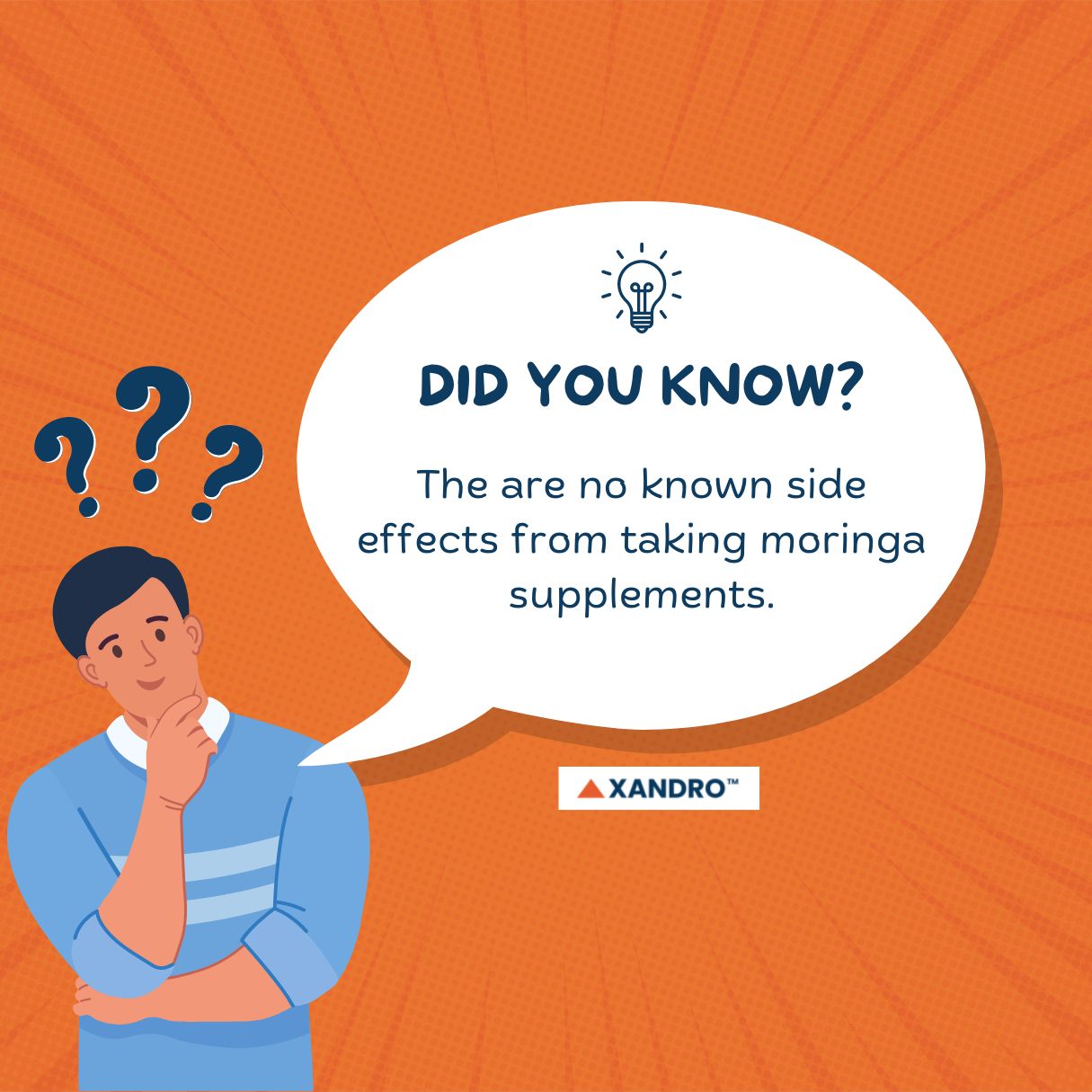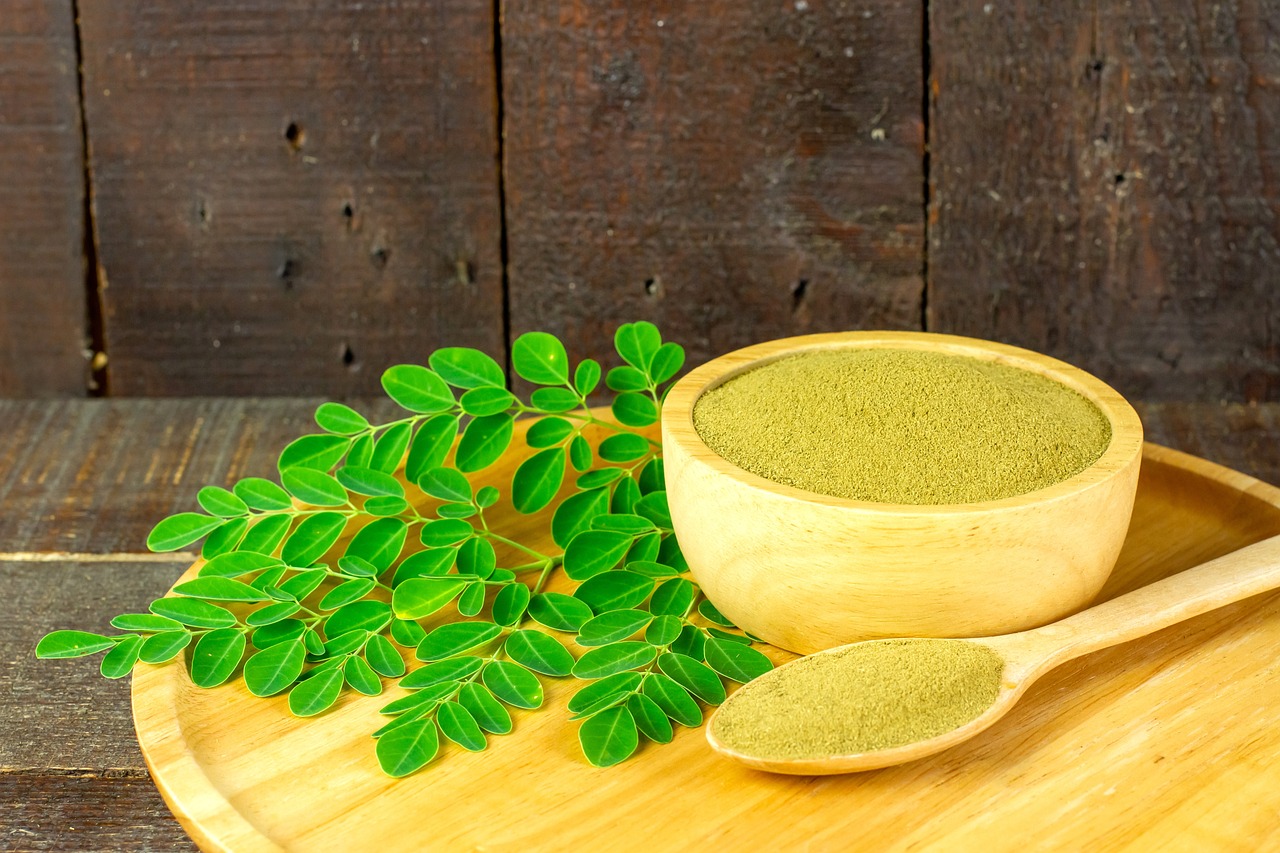What is Moringa Powder and What Does It Do?
19th Feb 2024
Everything You Need To Know About Moringa
What is Moringa Powder?
Moringa powder is used in food and medicine. It’s high in antioxidants and other nutrients, and, when dried, its leaves can be ground into a fine powder that can be stored at room temperature. It’s also known as the drumstick tree, the miracle tree, the ben oil tree and the horseradish tree.
What is Moringa Powder made of?
Moringa powder is made from the moringa tree, a tree native to the south of the Himalayan Mountains in northern India. It’s now grown all over the world and nearly all of the tree is edible.
What Can Moringa Powder Do for You?
Moringa leaves are rich in antioxidants and contain nutrients such as calcium, iron, potassium, magnesium phosphorus and vitamins A, B1, B2, B3, C and E.
If you’re wondering, ‘What is moringa powder good for?’ then know that it has other uses too. Moringa powder benefits include being used as an antiseptic to sterilise contaminated surfaces against bacteria and fungi, used to treat malaria, typhoid fever and hypertension. It’s a medicine in that it can help prevent and treat inflammatory diseases like arthritis, diabetes and cancer.
It has been suggested to also help heal skin and benefit hair health, as well as help reduce ear edema, protect against non-alcoholic fatty liver disease, treat your upset stomach, protect your cardiovascular system and even treat asthma.
How to Use Moringa Powder?
While safe, the daily dosage of moringa should be limited to 70g of leaves per day or 11 teaspoons of moringa powder.
People taking moringa leaf products have found no side effects when used for up to 6 months, with products containing moringa seeds having been used for up to 3 weeks.
For how to drink moringa powder, you can add a teaspoon of powder to a glass and stir in some boiling water to dissolve it, then add it to your recipe, shake or even fill it with more hot water and add some sweetener. Learn how to make moringa tea below.
What Happens When You Drink Moringa Every Day?
Moringa is safe to take daily and to experience the full potential side effects, like most supplements, it’s recommended to be consistent and to take it daily. Learn more about the benefits of moringa above.
Can I Take Moringa Powder on Empty Stomach?
There’s no proper way to take moringa, so take it when best suits you. You can take it on an empty stomach or on a full stomach as it doesn’t have any reported side effects. If you experience any side effects on an empty stomach, try taking it after having a meal.
What are the Side Effects of Taking Moringa?
There are currently no negative side effects from taking moringa, with the leaves, seeds, bark, roots, sap and flowers all being used as medicine, while the leaves and seed pods are used for food. Extracts made from the leaves have also been found to be safe.

Who Should Not Take Moringa?
It’s currently not known if it’s safe to use the root, bark or moringa flower when pregnant due to possible toxic substances in them. The root and bark were often used to cause miscarriages in traditional medicine, so avoid all moringa use to stay on the safe side when pregnant. Using moringa may make hypothyroidism worse, and if you take medications changed by the liver or medications moved in and out of your cells, these might interact with moringa.
Should I Take Moringa in the Morning or at Night?
You can take moringa in the morning or at night, it just depends on what you’re taking it for.
As it’s full of nutrients, is an anti-inflammatory and is full of antioxidants, taking it at night can help fuel your body for a deep and relaxing sleep. On the other hand, since it’s full of nutrients, keeping you satiated, you might want to take it in the morning for a healthy start to the day.
Why Do I Feel Sleepy After Taking Moringa?
Moringa may indirectly help you get a better night’s sleep. It can balance blood sugar levels, decrease inflammation in the body, improve gut health and digestion and combat stress, all of which may contribute to a more restful sleep.
Some have suggested that moringa contains Pterygospermin which sets off multiple key body conditions for a good night’s rest, making you sleepy, although studies have suggested that moringa doesn’t actually contain this compound.
What Does Moringa Taste Like?
Moringa powder has a slightly nutty and earthy flavour but with a hint of bitterness, slightly similar to matcha green tea. Many people add a sweetener when making it into a drink.
Which is Better, Moringa Tea or Powder?
Moringa powder is made from dried moringa leaves ground into a fine powder. Moringa powder is more versatile and easy to come by so it’s likely the option you will be buying. You can make it into a tea, just like dried moringa leaves. As you’re using the entire leaves as it’s made from ground leaves, moringa powder is most likely the better option to use.
Can Moringa Reduce Belly Fat?
In regard to moringa powder and weight loss, it may have benefits for people with obesity due to it preventing inflammation, lowering cholesterol levels, manage lipids and protect the liver. There’s currently no solid evidence of it helping with weight loss at this stage.
Regardless, you might want to start adding moringa to your weight loss journey, using moringa recipes and even learning how to make moringa tea — simply add about 1 teaspoon of dried loose moringa leaves per cup of water, steeping for about five minutes, before doctoring it to your taste. You can even mix it with green tea leaves!

What is Better than Moringa?
- Matcha: Contains higher antioxidants, especially with EGCG, as well as vitamin C and L-theanine. It tastes better than moringa, although it contains caffeine. While moringa contains more nutrients, it doesn’t have EGCG or L-theanine which some people are after.
- Spirulina: Moringa is actually better nutritionally than spirulina, although spirulina is higher in protein and vitamin C and lower in calories.
- Curcumin: Moringa may be more effective than turmeric at reducing inflammation and if you don’t take pepper with your curcumin, or take a supplement that has a high bioavailability, like Xandro Lab’s Turmeric Curcumin, then you won’t absorb curcumin as well as moringa.
- Resveratrol: As a compound, it doesn’t contain nutrients like moringa, but taken as a supplement, it’s a powerful antioxidant and anti-inflammatory, more so than moringa, potentially helping joint pain, helping with diabetes, lowering cholesterol and being a nootropic and longevity supplement.
- Pomegranate Extract: Like moringa, pomegranates contain various nutrients, such as vitamin C and folate, plus antioxidants and anti-inflammatory compounds. It’s been researched more than moringa for its potentially benefits on blood pressure, heart and urinary health, cancer, digestion, brain, endurance and on menopause. Learn more about Xandro Lab’s POM-Q10 and the benefits of pomegranate supplements here.
End Note
Moringa is a traditional medicine where all parts of the tree may have health benefits, but more research is still needed for solid evidence for these benefits. As always, it’s best to get your nutrients throughout the day from the healthy and diverse foods you eat, but adding it to your diet won’t do you any harm.
Before adding any new supplement to your diet, make sure to speak with your doctor to determine if its right for you. Also, make sure you’re taking pure moringa without any additives as supplements aren’t regulated.
Are you after similar benefits to moringa? Try out Xandro Lab’s Trans-Resveratrol and POM-Q10 supplements!
